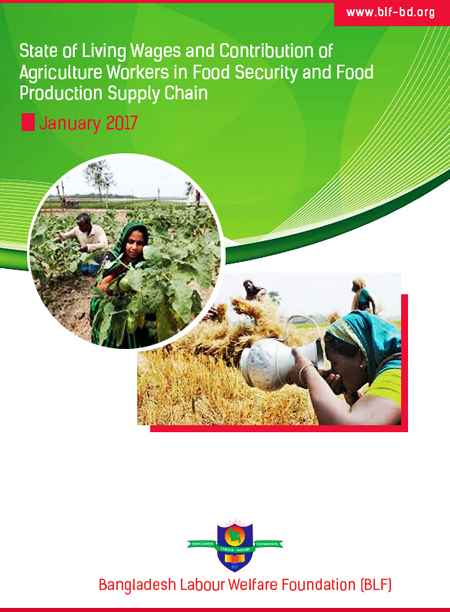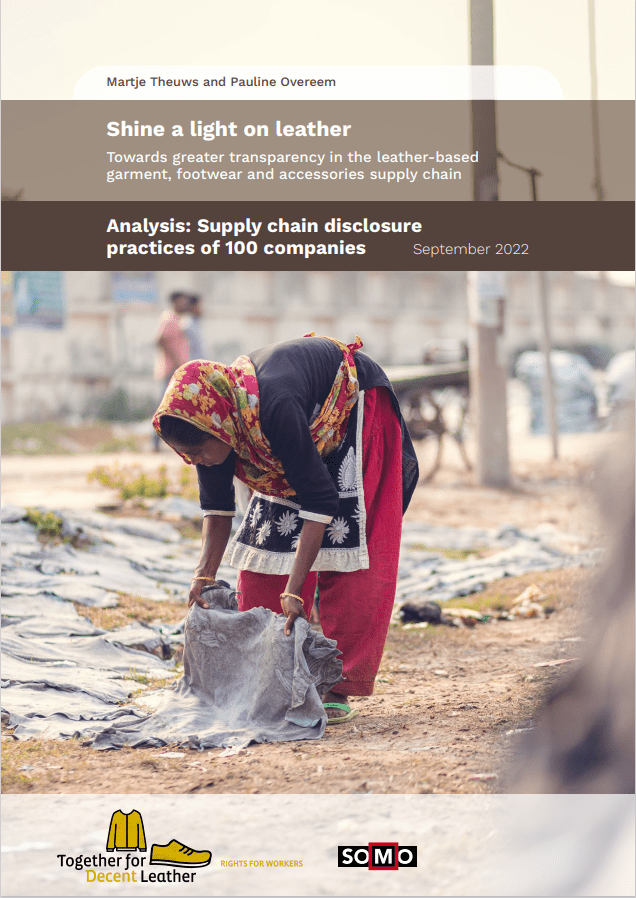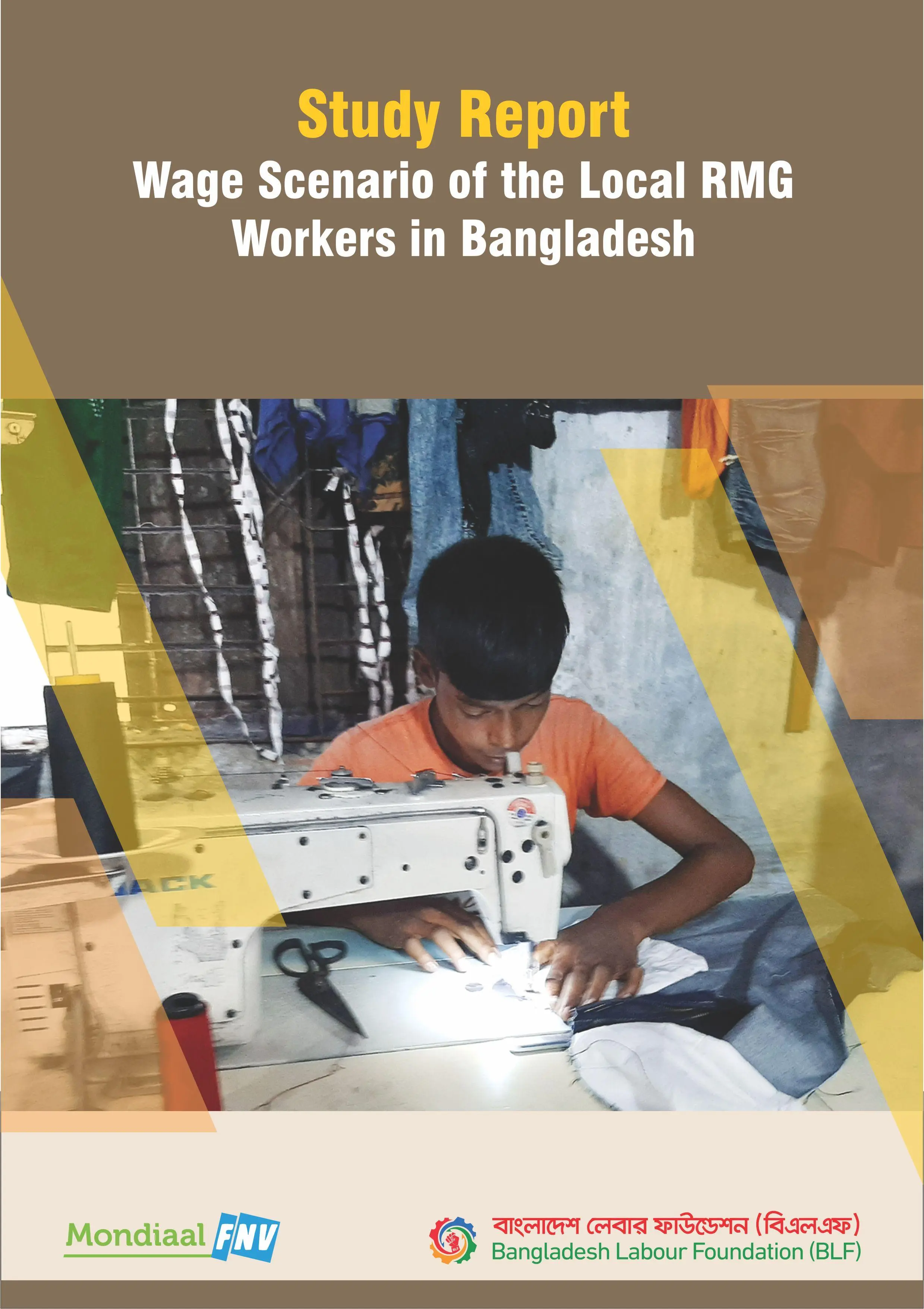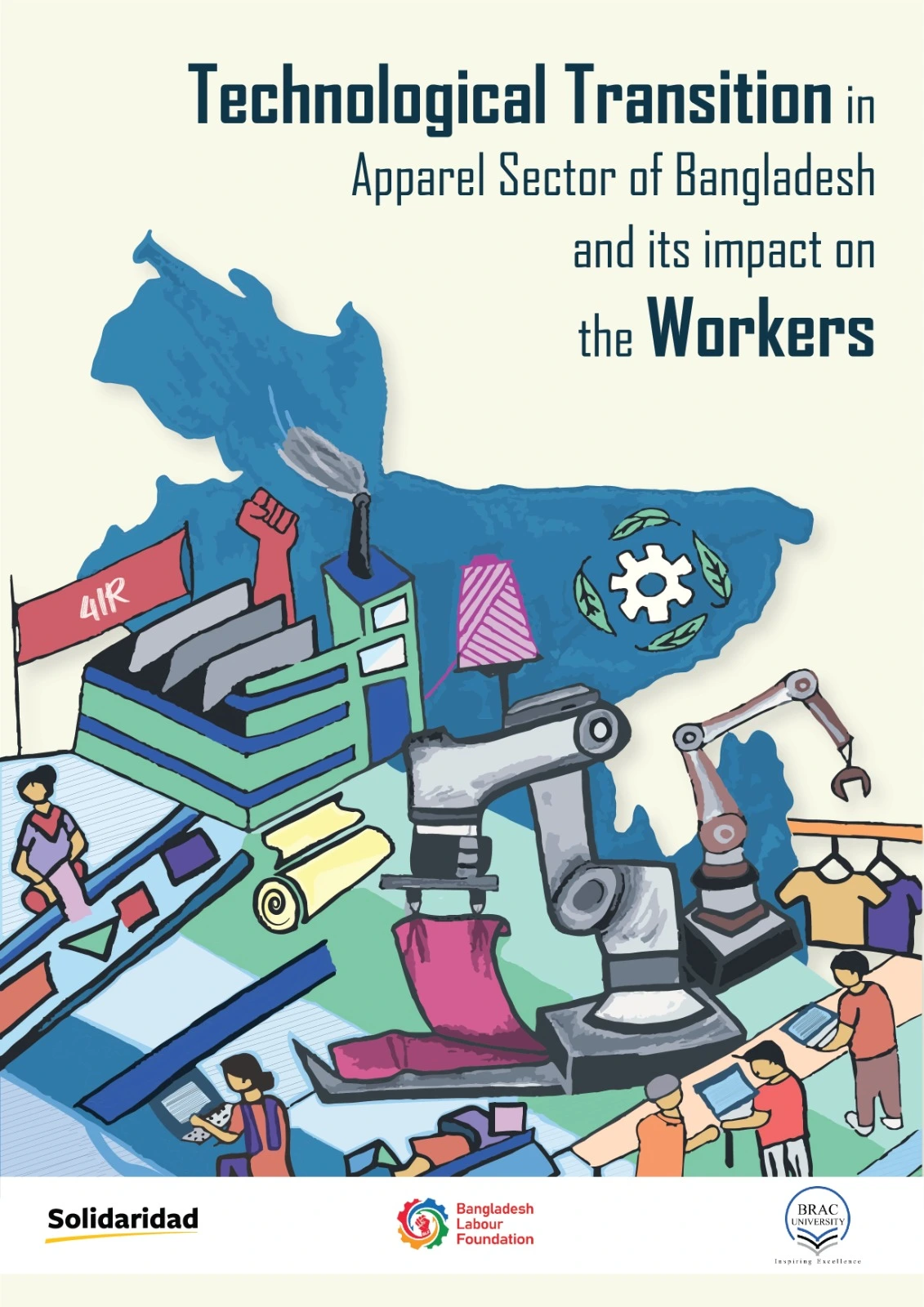Bangladesh’s leather sector makes up about 3 per cent of the world’s market for leather and leather goods. The sector is the country’s third largest source of export earnings, after readymade garments and jute and jute products. According to a study by EBL Securities, Bangladesh produces 350 million square feet of leather each year, of which 20 to 25 per cent is used locally while the rest is exported. The World Footwear Yearbook 2020 lists Bangladesh as the eighth largest producer and 18th largest exporter of footwear, with an annual production volume of more than 400 million pairs of shoes..
Research & Study
Employment and working conditions in Bangladesh’s leather industry
September, 2022
This study aims to assess the employment and working conditions in Bangladesh’s leather industry. It focuses on the demographic and socio-economic characteristics of tannery workers, their rights to association and collective bargaining rights, occupational health and safety, and labour and employment practices at tanneries. The study draws on both quantitative and qualitative data collection instruments to gather detailed information about the tannery workers.
Background
Bangladesh’s leather sector makes up about 3 per cent of the world’s market for leather and leather goods. The sector is the country’s third largest source of export earnings, after readymade garments and jute and jute products. According to a study by EBL Securities, Bangladesh produces 350 million square feet of leather each year, of which 20 to 25 per cent is used locally while the rest is exported. The World Footwear Yearbook 2020 lists Bangladesh as the eighth largest producer and 18th largest exporter of footwear, with an annual production volume of more than 400 million pairs of shoes.
In terms of labour standards and workplace safety, the leather tanning industry in Bangladesh is no exception from the country’s other labour-intensive industries, where sweatshop conditions are commonplace. Even after the relocation from Hazaribagh, which promised better living and working conditions for the tannery workers, the industry is still struggling to ensure minimum wages, basic labour rights, and occupational health and safety. The leather tanning industry in Bangladesh is failing to deal with the challenges of weak environmental compliance on the one hand and poor labour standards and occupational safety on the other hand, which is impacting on production.
Objectives
- Analyses of the characteristics of workers and working conditions in tanneries in Bangladesh.
- Analyses the problems and challenges associated with the practices of fair labour standards, e.g. minimum wages, collective bargaining rights, and occupational health and safety.
- Analyses the impact of the recent relocation of the tanneries from Hazaribagh to Savar on the lives and wellbeing of workers.
Key Findings
- Workers in the new tannery estate in Savar face various challenges, including accommodation and transportation crises, inadequate medical and schooling facilities, and little or no improvement in workers’ safety and rights.
- Employment in the tannery industry also remains highly gender-insensitive, as employers are reluctant to hire female workers.
- Wage growth and employment benefits are minimal in the industry with more than half of the surveyed workers earning less than the legal minimum wage.
- Workers toil for long hours, sometimes with forced overtime, and are subject to the whims of their employers because of scant union activism, weak workers’ representation, and the lack of formal employment arrangements such as written contracts.
Recommendations
- Employers must respect the rights of workers. They must provide a safe and healthy workplace. In addition, employers need to train new workers if the job involves working with toxic chemicals or other materials such as machinery that might potentially cause workplace hazards.
- Employment in the tanneries must be formalized by requiring employers to offer workers a written and signed contract enshrining their duties and responsibilities, as well as compensation and employment benefits.
- Formalization of employment is central to eliminating the current sweatshop conditions and ensuring decent pay with improved labour standards in the tannery industry.
The Human Rights Charter and The Bangladesh Constitution, which have physical and mental development or have promised to uphold are totally missing. In addition, discrimination, exploitation, and torture have become a regular occurrence for these children, and poverty happens to be the main cause. The children’s lives remain further in misery and uncertainty due to the recklessness of the owners to maximize profit at any cost, backed by the absence of proper enforcement of relevant regulatory instruments. An intense and coordinated effort from the involved parties is the only way out of this situation.

Publication Details
Date: September, 2022
Contact
Bangladesh Labour Foundation (BLF)
107 Bir Uttam C.R. Datta Road
Dhaka – 1205
Bangladesh






